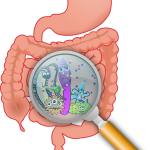Resolution Reboot 2023: How Inflammation Affects You by Joan Kent, PhD
Inflammation can cause pain, limit your mobility, impede your recovery from workouts, injuries or illness, and interfere with your sleep, your health, and more.
What Is Inflammation?
It’s the body’s natural way of initiating healing and repair, and we can’t heal without it. As our natural protective response to infection, to illness, or to damaged tissue, inflammation helps to protect the body from the original causes of the inflammation. It does that by removing harmful stimuli and/or removing dying (necrotic) cells and tissues.
The signs and symptoms of inflammation are things you may have experienced at some point: heat, redness, swelling, pain, and loss of function.
What Triggers It?
Inflammation can be triggered by injury, sudden changes in workout intensity, high-intensity workouts without adequate recovery time, and ignoring the need for rest days.
Not sleeping enough is a trigger, as well. And so is poor diet.
Even though inflammation is natural and necessary, it’s a problem when it becomes chronic.
What are the signs and symptoms of chronic inflammation?
- decreased immune function
- a run-down feeling
- frequent colds or flu
- gastro-intestinal issues, such as gas, bloating, or constipation
- joint aches, pains, and stiffness
- lethargy, even after sleep
- poor-quality sleep
- poor post-workout recovery, which can in turn lead to overtraining
According to current medical theory, inflammation is the root cause of virtually all disease. Nearly all chronic or degenerative disease is said to have the same cause: an inflammatory state that is induced by diet.
The good news about the fact that it’s diet-induced is we can do something about it. Let’s look at how.
Diet and Inflammation
Cellular activities of all kinds are regulated by short-lived, hormone-like chemicals called prostaglandins. These chemicals don’t travel through the bloodstream. They are instead delivered from cell to cell through the interstitial fluid.
Prostaglandins (PGs) are made from foods, specifically fats, and they can help us or hurt us. There are 3 types: Series 1, 2 and 3.
Series 1 and 3 are good guys. Series 2 are the bad guys. Let’s look at each type.
Series 1 prostaglandins are involved in many, many health effects. The following are only a few:
- decrease pain & inflammation
- inhibit clotting
- dilate vessels & decrease blood pressure
- improve immune function
- increase insulin sensitivity & decrease insulin release
- relax bronchial tubes
- relieve angina pectoris
- decrease auto-immune disease risk
- decrease allergies & histamine release
- decrease the need for sleep
- stimulate hormones: thyroid, adrenal, pituitary, HGH
- alleviate depression, ADHD, PMS
- remove renal sodium & excess fluid
- MUCH MORE!
Series 3 prostaglandins support series 1 functions. They decrease inflammation and enhance immune function. Importantly, they reduce the effects of series 2 PGs.
Series 2 prostaglandins, in contrast, oppose series 1 functions. They promote pain and inflammation, depress the immune system, increase excess fluid retention, raise blood pressure, and promote clotting. Series 2 PGs also increase depression, decrease motivation, and promote PMS, allergy, and disease of all types.
How Can You Eat for Good PGs?
Let’s make this highly do-able by keeping it super-simple.
Include these foods in your diet regularly: fish or fish oil, flax seed oil, hemp seed or hemp seed oil, pumpkin seed, and walnuts. Fish oil supplies different fats from the other oils listed, so if you don’t eat fish, at least take a fish oil supplement.
Perhaps surprisingly, dark green leafy vegetables should also and absolutely be included. We don’t think of leafy vegetables as containing fat – and they don’t contain much – but every bit of it is an important fat called ALA (alpha linolenic acid).
In the other direction, it’s also critical to limit high insulin triggers. The highest insulin-triggering ‘foods’ I know of are alcohol, white flour and sugar.
Insulin changes the enzymes that work on the fats that we eat, and that causes the production of Series 2 prostaglandins, which we want to avoid.
Does This Work?
A client with ankylosing spondylitis (arthritis of the spine and lower back) wrote: “Dr. Joan Kent’s comprehensive plan reduced my body’s inflammation, the precursor to the pain & spinal fusion symptoms. I am forever grateful.” – Thomas H.
Cyclist Gary Y. said, “Your advice has benefited me in ways I can never express enough gratitude for. I recover so much better and don’t suffer the fatigue I used to. I’m raring to go the day after a long ride. So thank you so much!”
If you’d like more info to help you with health issues or workout endurance, I invite you to visit LastResortNutrition.com and grab your Upgrade My Health consult. Discover how simple changes can make huge differences in your energy and the way you feel.
Brought to you by Dr. Joan Kent, best-selling author of Stronger Than Sugar.



